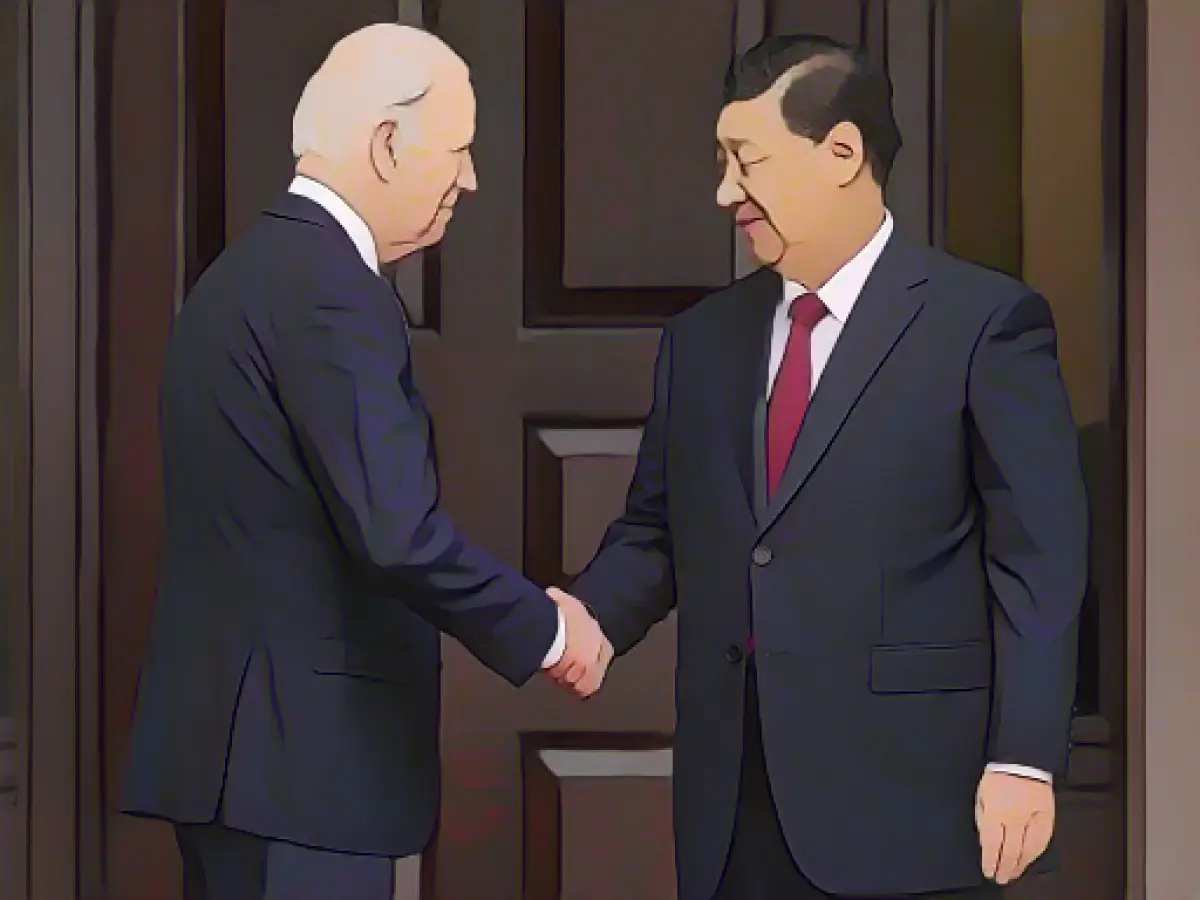Title: Biden and Xi: Reviving U.S.-China Dialogue and Addressing Fentanyl Crisis
Relations between the United States and China have suffered a series of setbacks over the past few years, primarily due to economic sanctions, military tensions, and fears that China may invade Taiwan. However, in a significant move, President Joe Biden and Chinese leader Xi Jinping recently held their first face-to-face meeting in over a year, with discussions lasting more than four hours.
A Constructive Conversation
Following the meeting, Biden described the talks as "among the most constructive and productive" he'd had with Xi. The leaders further agreed to encourage more telephone communication between themselves to foster closer ties. While Biden maintained his labeling of Xi as a "dictator," he indicated a willingness to improve relations.
The primary focus of the meeting revolved around resuming military communication between both nations, which has been suspended for months due to misunderstandings and potential accidents. To that end, U.S. Defense Secretary Lloyd Austin is scheduled to meet with his Chinese counterpart, and both countries will engage in operational talks between senior military leaders and information exchanges between ship commanders.
Addressing the Fentanyl Crisis
The rift between China and the United States extends to the international problem of combating the illegal export of fentanyl components. In an unprecedented step, Biden and Xi agreed to collaborate on measures to control the export of components used in the production of this deadly opioid. Biden emphasized that the opioid crisis, responsible for more than 70,000 deaths in the U.S. alone in 2021, poses a grave threat to American lives.
This collaboration comes as a response to criticism from the U.S. government charging China with fostering the drug epidemic through the production of fentanyl. Additionally, Democrats have demanded a tougher stance against China due to domestic concerns about the drug issue.
The Taiwan Dilemma
The issue of Taiwan has consistently been a major point of contention between the United States and China. The democratic island, separated from China by a strait, is seen as a part of China's territory. With military demonstrations and a potential war looming, disagreements remain particularly tense around Taiwan's sovereignty.
In their talks, Biden emphasized the U.S. stance on maintaining the status quo, rejecting any unilateral changes, and advocating for peaceful resolution of issues. Xi, too, reiterated his support for peaceful reunification but hinted at conditions that could justify military action.
Despite the ongoing tensions, Biden and Xi signaled their intention to communicate directly should a crisis arise. This commitment served to diffuse some of the tension following a heated exchange over Chinese surveillance balloons in 2022.
The Implications
The resurrection of military and diplomatic dialogue between the United States and China marks an important step toward easing tensions. The collaboration on the fentanyl crisis may prove fruitful in addressing a pressing health issue that affects both nations. However, resolving the key disputes, particularly in relation to Taiwan, will require a delicate approach and sustained dialogue.
In conclusion, the renewed engagement between Biden and Xi signals an opportunity for meaningful discussion and greater cooperation. Solving complex international issues like the combating of fentanyl and easing tensions in Taiwan require a collaborative effort that prioritizes understanding, cooperation, and mutual respect.
Enrichment data has been integrated sparingly where it amplifies, clarifies or enriches the base article.








